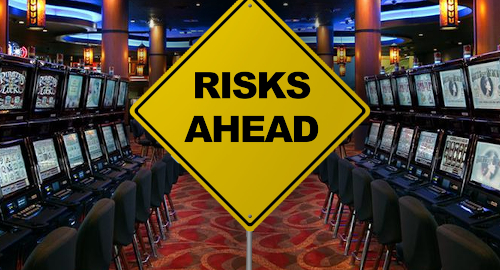
Problem gamblers ignore information that could limit their losses, instead relying on information from previous gambling results.
A new study by the University of British Columbia’s Center for Gambling Research aimed for a better understanding of the reasons behind the poor decision-making process displayed by individuals who can’t control their gambling activity.
The survey consisted of 48 problem gamblers and 35 control participants who were asked to repeatedly choose between two types of lottery games, one featuring a larger but less probable reward and the other a more probable but smaller reward. (For the record, the problem group’s favorite types of gambling were slots (48%), while online gambling/card games tied for second at 12.5%.)
In one test, participants started with zero coins and aimed to build their stack, while the other test saw each participant start with a 200-coin stack with the aim of minimizing their losses. Participants were shown the odds of winning before each game, with each player receive a participation fee and told they could keep any ‘winnings’ (in the form of gift cards).
The primary difference between the two groups proved to be the problem gamblers’ being more “sensitive to the feedback from the previous decision,” i.e. whether they won or lost the previous round, “despite the independence of each trial.”
Using past performance as a guide is widely known as the gambler’s fallacy, i.e. feeling that a slot machine that hasn’t paid out in a while is ‘due’ for a big score. Previous studies have found that stock market traders are prone to this fallacy, with over 40% of portfolio choices based on the belief that a poorly performing stock was due for a rebound compared to just 20% of choices based on ‘rational consideration.’
Notably, the study’s authors didn’t find any evidence that the problem gamblers were “simply responding more impulsively (i.e. faster)” than the control group. The problem gamblers were just more likely to choose to ignore the statistical likelihood of winning big than the control group.
The study did note that members of the gambling group were “more likely to smoke tobacco and use non-medical drugs.” That dovetails with numerous other studies showing problem gamblers have much higher prevalence of alcohol and substance issues.
The study didn’t attempt a chicken-or-egg diagnosis of whether the gamblers’ susceptibility to dodgy decision-making predated their gambling problems. But other studies have shown that problem gamblers’ siblings often show similar markers of impulsivity and risk-taking, while first-degree relatives of problem gamblers were eight times more likely to develop gambling issues than non-relatives.
All of the above, along with numerous studies detailing similar patterns of brain activity, strongly suggests a genetic predisposition to problem gambling tendencies. The hope is that further study will eventually allow for early diagnosis and better treatments to protect vulnerable individuals.





